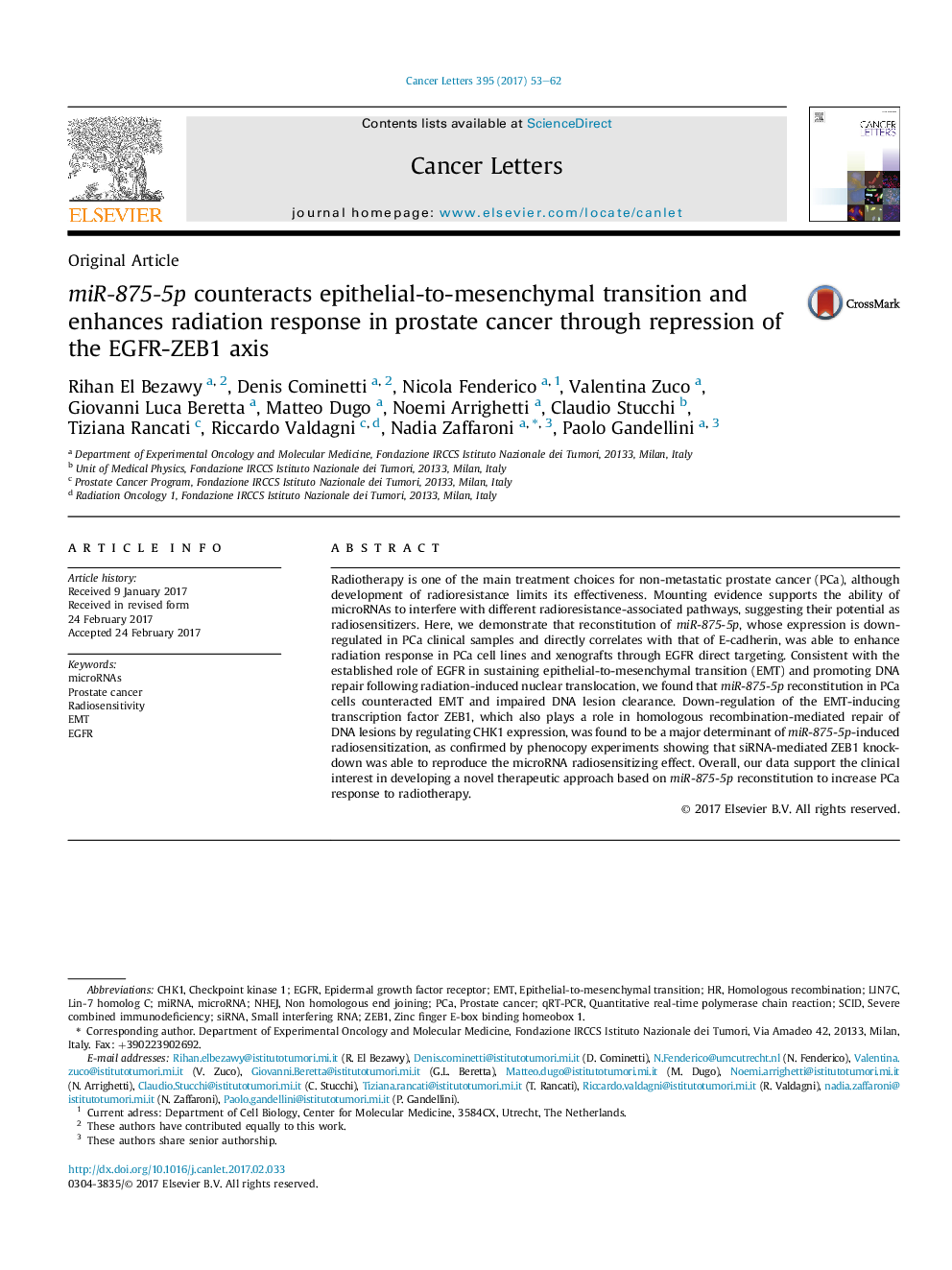| Article ID | Journal | Published Year | Pages | File Type |
|---|---|---|---|---|
| 5525628 | Cancer Letters | 2017 | 10 Pages |
â¢miR-875-5p expression is down-regulated in prostate cancer clinical samples.â¢miR-875-5p reconstitution enhances radiation response in prostate cancer models through EGFR direct targeting.â¢Radiosensitization relies on EMT suppression and DNA repair inhibition as a consequence of ZEB1 down-regulation.
Radiotherapy is one of the main treatment choices for non-metastatic prostate cancer (PCa), although development of radioresistance limits its effectiveness. Mounting evidence supports the ability of microRNAs to interfere with different radioresistance-associated pathways, suggesting their potential as radiosensitizers. Here, we demonstrate that reconstitution of miR-875-5p, whose expression is down-regulated in PCa clinical samples and directly correlates with that of E-cadherin, was able to enhance radiation response in PCa cell lines and xenografts through EGFR direct targeting. Consistent with the established role of EGFR in sustaining epithelial-to-mesenchymal transition (EMT) and promoting DNA repair following radiation-induced nuclear translocation, we found that miR-875-5p reconstitution in PCa cells counteracted EMT and impaired DNA lesion clearance. Down-regulation of the EMT-inducing transcription factor ZEB1, which also plays a role in homologous recombination-mediated repair of DNA lesions by regulating CHK1 expression, was found to be a major determinant of miR-875-5p-induced radiosensitization, as confirmed by phenocopy experiments showing that siRNA-mediated ZEB1 knock-down was able to reproduce the microRNA radiosensitizing effect. Overall, our data support the clinical interest in developing a novel therapeutic approach based on miR-875-5p reconstitution to increase PCa response to radiotherapy.
